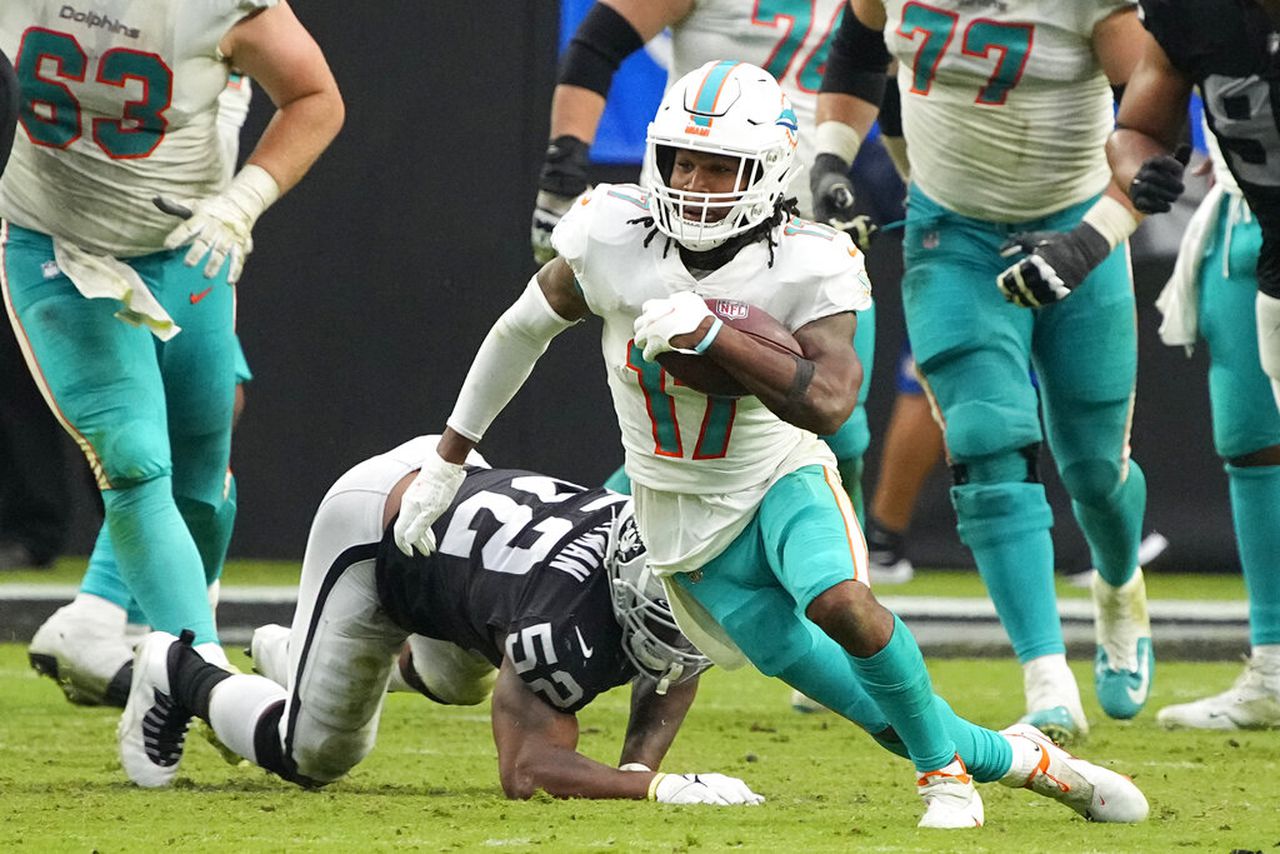
If you take a look at the playoff picture in the AFC, you’ll find the Miami Dolphins knocking on the door.
That is not a sentence I thought I would be writing as recently as a month ago.
After a dismal 1-7 start that had most fans looking ahead to 2022, Brian Flores and his Miami Dolphins have found an extra gear and rattled off four straight victories. They haven’t been ‘meh’ victories, either – they’ve been convincing wins against some really good teams.
And that’s all well and good. But this was a team that nobody expected to compete at the start of the season. How are they doing it now?
Third-down defense
It doesn’t take a rocket scientist to hypothesize that one of the biggest contributors to Miami’s sudden change in form is the way they’ve improved on the defensive side of the ball. Over the last month of games, Miami’s defense has allowed more than ten points only once – a stark contrast from the eight previous games, a stretch in which they allowed over 20 points in all but one game. The improvements have been impossible to miss, but what’s the reason for it?
One big explanation is their performance in third-down situations. The recipe is simple; if you get off the field quicker, you give up fewer points. And the Dolphins have been getting off the field quicker. Much quicker.
In their first eight games, the Miami Dolphins were allowing opponents to convert on over 50 percent of their third downs (55-of-108). Understandably, they possessed one of the worst scoring defenses in the league. But since then, they’ve been elite. During the four-game winning streak, Miami opponents have converted on just over 30 percent of their third downs (19-of-59), a rate that would rank them third in the NFL if extrapolated for the entire season.
Shining secondary
The entire defensive unit has improved during Miami’s hot stretch, but extra credit must be handed to the secondary. It’s taken its play to another level since Week 9, and the improvements are popping up in a number of ways.
The first way that they’ve been disrupting the opposition’s passing game is by putting a cap over the top. They’ve closed off the deep ball and forced quarterbacks to look for shorter reads, and while they’ve still given up a handful of big plays – any defense will – they’ve still shortened the field for opposing quarterbacks. Through the team’s first eight games, the Dolphins allowed 7.7 pass yards per attempt. But since then, that number has fallen to just 6.0. The secondary isn’t giving as much down the field, which is making points harder to come by.
Another byproduct of shrinking the field is an increase in turnovers. The Dolphins have hauled in seven interceptions in the last four games, which is a high number during a four-game stretch for anyone. But when it’s compared with their three interceptions through the first eight games, it becomes even more impressive. The secondary is shrinking the field, and with a smaller field comes fewer options for quarterbacks. Miami is capitalizing.
Effective blitzing
The Miami Dolphins have loved the blitz this season. In fact, at 38.4 percent, the only team that blitzes more than them in the NFL is the Buccaneers (38.8 percent). And while they’ve blitzed a bit more since Week 9, that number still hasn’t drastically changed since the start of the winning streak.
The one thing that has, though, is their ability to actually get to the quarterback.
When Miami sent heat, it wasn’t getting home as consistently as they wanted it to. In fact, they only had twelve sacks through eight games despite blitzing pretty frequently. The blitz is fantastic when it’s working, but it wasn’t working for Miami. Those five-, six-, and seven-man rushes weren’t putting enough pressure on the quarterback and it was leaving receivers alone in the open field, meaning easy completions and more points.
Since then, though, the blitz has become Miami’s most dangerous tool.
Sixteen sacks in the last four games have more than doubled the Dolphins’ season total, and it’s also giving quarterbacks less time in the pocket to operate. The Dolphins are disguising their looks effectively, stacking players on the line that drop into coverage or blitzing with players higher up in the box, and quarterbacks haven’t been able to deal with it. Combined with a much-improved secondary and elite third-down efficiency, it’s easy to see how all three things are working in synergy.
Jaylen Waddle
It hasn’t been all about the defense, though. A big part of Miami’s winning streak has been the improvement of rookie wide receiver Jaylen Waddle, who has been a bit underrated given the other talented receivers having strong rookie seasons but may quietly be having the best campaign of them all.
Waddle has become Tua Tagovailoa’s clear top target after a start to the season that saw him get similar targets to Mike Gesicki and Myles Gaskin. In those eight games, Waddle averaged six receptions for 52 yards, but in the four games since, the former Alabama receiver has posted an impressive 7.7 receptions for 86.5 yards, numbers that don’t just lead the Dolphins but sit near the top of the league in that time frame.
Drafting a wide receiver in the first round is always risky business. Lord knows how many flops there have been in the past few seasons. But Waddle, who even broke out a new celebration, looks like the real deal.
[pickup_prop id=”16331″]









